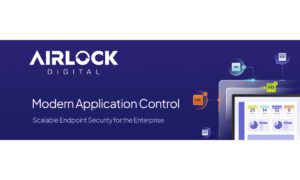52% of businesses identified cloud-based technologies as a critical element in infrastructure growth. You must keep cloud-based tools and technologies in mind to upgrade your physical security. But why should you consider the cloud in your physical security plans?
Cloud-based security helps you get the best ROI on your security investments and ensure your security strategy fits your work model. Keep reading as we discuss the main benefits of cloud-based technologies for physical security.
More Visibility, Access, And Control
One of the main advantages of choosing cloud-based security is that you will have more visibility, access, and control when managing your security installations. Let’s discuss the different security tools you can use with the cloud for better security management to give you an idea of what this means.
Access Control
Cloud-based door entry security systems facilitate remote operation of security features and allow system administrators to view security information from anywhere. With a traditional access control system, your remote workers would need to visit the site to allow visitors to enter and to enable employees to enter should they lose their access credentials. This issue does not arise with a cloud-based access control system.
Your security staff and system administrators can unlock and lock doors from anywhere using a mobile application or cloud-based control centre. This can save many hours of wasted time and remove any roadblocks to productivity caused by your security system. Cloud-based access control’s remote features also allow your HR teams to onboard new hires to your security system from anywhere to ensure they gain access credentials as soon as possible to maximize convenience and efficiency. Likewise, if your HR team needs to offboard an ex-employee, they can do so instantly from any location to prevent an internal security breach.
With cloud-based access control, you also gain the benefit of open API integrations that allow you to expand the function of your security technology with software such as:
- Time tracking software – automate time tracking based on access control events for more accurate time tracking data and payroll calculations.
- Visitor management – integrate visitor management software with your access control to automate visitor management and provide more accurate visitor records.
- Wellness attestation – if you want to establish a culture of health and safety in the workplace, you can integrate wellness attestation software with your access control. All individuals who enter the building must first fill out a coronavirus screening survey. If they are symptomatic, the system will restrict their access.
- Occupancy management software – businesses switching to a hybrid work model can evaluate the ROI they get from their office space by using occupancy management software to gather occupancy data and see how functional their office space is.
Video Surveillance
The benefit of cloud-based video surveillance is that system administrators can move security cameras and view the security feed from anywhere on a mobile application. You can also establish automated alerts for any movement or abnormal activity detected on your security cameras outside office hours to ensure you’re always aware of any security threats.
Cloud-based video surveillance also allows businesses to integrate video surveillance and access control for identity verification. An office intercom system is a cloud-based device with built-in video surveillance and access control, allowing security staff to view video information and access logs on a single interface for fast identity verification.
Alarms And More
One of the other cloud-based security installations worth mentioning is alarm systems. If your alarms are triggered, your system administrators will receive a mobile notification, allowing them to respond quickly to the threat from anywhere. They can look at security cameras using their device to verify the threat and take action quickly, regardless of whether they are on site.
To keep your security data private and ensure a third party cannot access your cloud-based security resources, it’s essential to practice good cybersecurity health and implement cyber security software.
AI And Analytics
Another significant advantage of cloud-based security is that you gain the opportunity to integrate AI and analytics with your security system to automate threat detection and workflow creation. Your AI software will monitor security data for you to reduce the need for manual observation.
When a threat is detected, your team will be notified. You can establish automated workflows based on your response protocols for security threats, automating the workflow creation process. When an event occurs, a workflow will be created based on the event and automatically assigned to an available team member. If your staff were to do this without the help of AI, this might hinder response time and efficiency.
AI helps to speed up your threat response and eliminates the need for your security staff to monitor surveillance feed – along with the potential for human error. Without AI you need to check IP manually and then take action on security.
Summary
Cloud-based security technology is the future of physical security. With the number of companies switching to hybrid and remote work models, on-premise security doesn’t cut. Security staff and system administrators need a more accessible system and control over security from anywhere. The open API integrations with cloud-based security also allow businesses to achieve excellent ROI on their security investments.



































